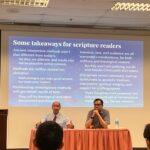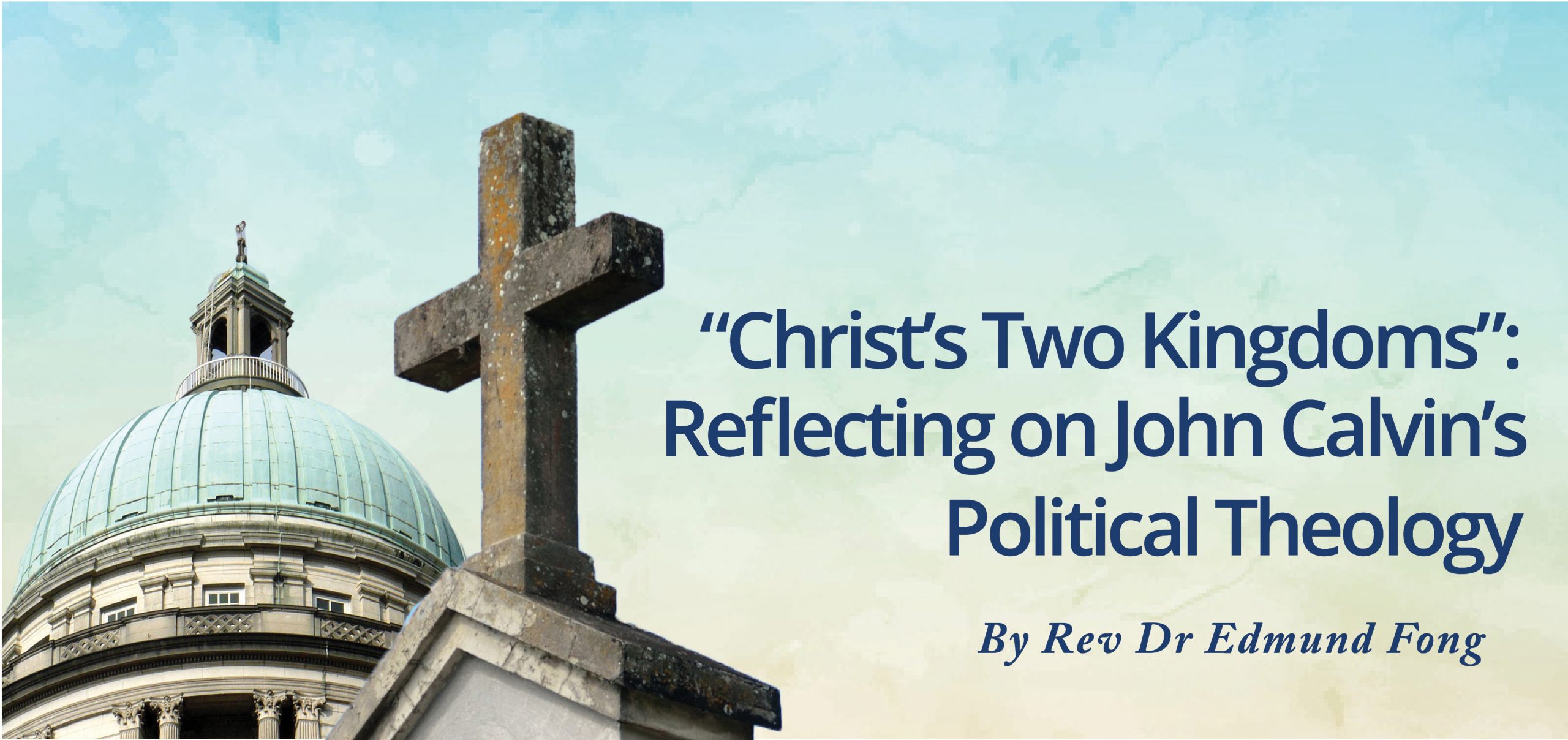

When our Lord mentioned the words “render to Caesar the things that are Caesar’s, and to God the things that are God’s” (Matt. 22:21), many wished that Jesus would have said more. What exactly are the things that belong to Caesar, and what are the things that belong to God? One valuable resource in answering this question flowing from the tradition of the church comes from John Calvin (1509–1564), pastor and reformer in Geneva during the Protestant Reformation. To be sure, Calvin wrote in a political and social milieu markedly different from ours. He wrote within the context of the Christian commonwealth of Geneva, where civil and ecclesiastical powers work together in cultivating ‘true religion’ and promoting the welfare of the body politic; this is a context vastly different from our religiously and politically pluralistic societies today.
However, as Matthew Tuininga’s Calvin’s Political Theology and the Public Engagement of the Church has shown, the true value of what Calvin has to offer lies not in his political actions or opinions but in his political theology, that is, Calvin’s theological and ethical account of human life and society, and how that account shapes our understanding of the church, civil government and other social institutions. Calvin’s political theology, in turn, follows from and is a major expression of his two kingdoms doctrine.
Stated simply: the two kingdoms doctrine is Calvin’s distinguishing between Christ’s lordship over his eternal kingdom and the temporal affairs of this life. It is important to note that Calvin’s two kingdoms doctrine is first and foremost eschatological rather than spatial in nature. All the terms Calvin uses to describe the two kingdoms — spiritual/temporal, heavenly/earthly, soul/body, inward/outward, and ecclesiastical/political — are eschatological in his thought.
The eternal kingdom, for Calvin, is an eschatological reality concerning the restoration of the entire creation beginning with the regeneration of human beings through Christ’s Word and Spirit. Where this restoration begins is in the church, and in this present age, Christ’s kingdom is realised only through the spiritual government that the Lord exercises in the church through his ministers. Calvin thus distinguishes the church from the temporal and political affairs of life — the temporal kingdom — albeit not in a hermetically sealed fashion, but in a manner that accords to each sphere its own form of jurisdiction or government.
It is this fundamental differentiation between the two kingdoms of Christ that leads to Calvin’s programmatic statement in the Institutes of the Christian Religion: “[T]here is a twofold government in man: one aspect is spiritual, whereby the conscience is instructed in piety and in reverencing God; the second is political, whereby man is educated for the duties of humanity and citizenship that must be maintained among men” .
The chief utility of Calvin’s twofold government concept arising from his two kingdoms doctrine is that the boundaries of each governmental realm, and consequently their function and role, become clearly defined. One is concerned with the restoration of true spiritual righteousness, virtue and eternal life in humanity, while the other with establishing civil righteousness and — within the context of the Genevan commonwealth — the outward worship and defence of true religion in accordance with love and prudence.
With these clearly demarcated boundaries comes the appropriate circumscription of authority. While temporal or magisterial authority through the office of the civil government is not meant and is not able to bring about a true inward righteousness and piety associated with salvation from sin, civil government is necessary to preserve outward piety and order while awaiting the consummation. Similarly, because spiritual or ministerial authority mediates the spiritual kingdom to believers in this time and age, the office of the pastor is to be focused on faithfully ministering Christ’s Word and the sacraments, and in enforcing church discipline, while leaving the other area of how the church is to conduct herself as an institution in the political kingdom under the jurisdiction of the civil authorities. In short, as Calvin himself states: “The church does not assume what is proper to the magistrate; nor can the magistrate execute what is carried out by the church”.
Having outlined the broad framework of Calvin’s overall political theology, allow me to conclude by sharing two insights pertinent to our public engagement today.
First, Calvin’s two kingdoms political theology provides a realistic picture of both church and state, and it grounds our political theology in a form of Christian realism deeply rooted in an orthodox and scriptural foundation. Civil government is not the kingdom of Christ, and it should not be rendered so. The civil law from which magistrates operate is not only unable to establish spiritual righteousness but often has to tolerate sin and sometimes even regulate sinful practices so as to mitigate their most destructive consequences. Civil government is not delegitimised when it fails to comply with the moral standards of God’s law, nor should it be required to do so. Likewise, even as spiritual government leads to true inward righteousness, the church must refrain from dictating the way in which the laws of the land are to reflect that righteousness; spiritual or ecclesiastical government must not overextend its authority into that of the temporal or political government.
Second, Calvin’s preference in turning to natural law rather than the Law of Moses in framing moral discourse — even within a Christian commonwealth — provides a valuable insight as to how we can conduct moral discourse within pluralistic societies today. By his non-insistence on conformity to the Old Testament’s civil law, advocating instead the rigorous use of reason, experience, pagan political philosophy and the laws of nations in tandem with Scripture as his mode of moral and political reasoning, Calvin not only rules out theonomy as a vision for societies, but upholds natural law — ultimately identified as the law of love and the rule of equity — as a basis by which Christians can participate in public engagement in our religiously diverse or otherwise secular societies. Using natural law need not mean that Christians have surrendered biblical norms and values, for the final authority concerning the content of natural law is still Scripture. But because natural law can be known through reason, the sciences, experience and conscience, it offers Christians a means of participating meaningfully in moral and political discourse without either preaching at nonbelievers or putting Christian confession as a prerequisite for discussion. It provides us with a common ground, a ‘public reason’ to further dialogue.

TRUMPET | Cover Story | Aug 2019








